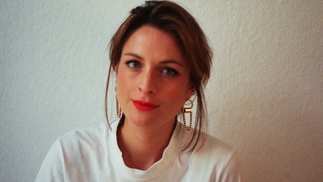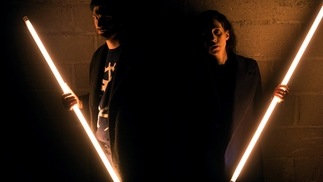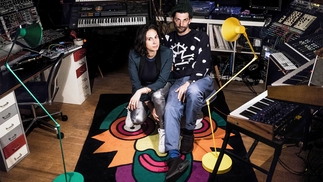MINIMAL MAESTROS
With minimal techno sounds seemingly making a comeback in clubland, we thought it a good time to check in with three minimal maestros
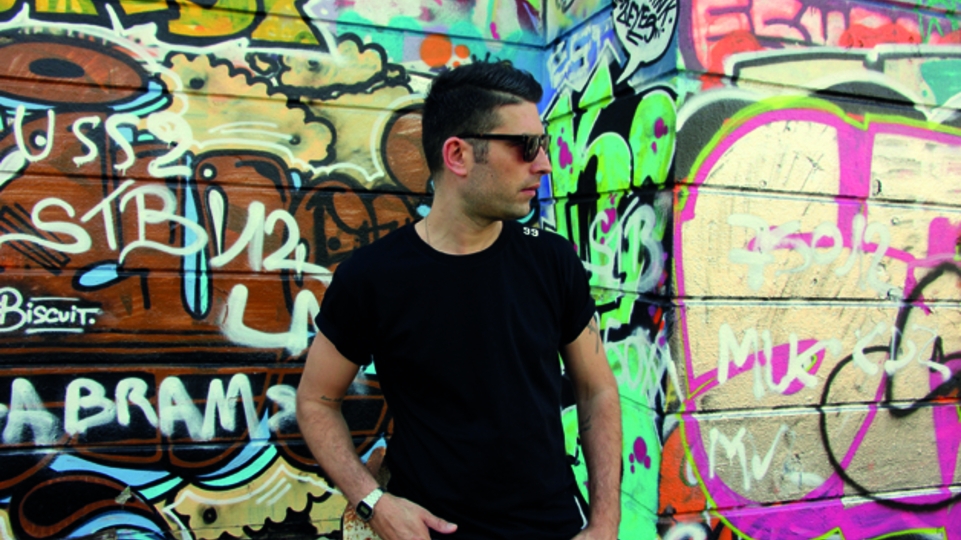
SHLOMI ABER

The Israeli owner of the Be As One imprint needs little introduction. His new '15 Years Of Nordstern' mix is testament to the fact that he remains amongst the most talented DJs in the booth after decades playing techno around the world, and given the contents therein — with delicate details subtly emerging from consistently muscular rhythms — it’s easy to say that he remains true to what first cemented his name; namely, deceptively simple rhythms. Forsaking assumptions for facts, DJ Mag asks if he agrees.
“I mean, everyone progresses, but I don’t think I’ve changed that much,” says Aber. “I’ve always been open-minded to different sounds — from my first releases there was techno, then tech house, but always a constant groove. I don’t think I’ve changed my taste in music since I was about 13, really. I mean, everyone moves with the wind of change; that’s natural, not planned.
“I’ve always been a vinyl lover, and still use it mostly,” he continues. “Since the digital revolution the music became less warm, everyone is influenced with what’s going on at the moment. But in the past year or two vinyl has come back big-time and it’s possible again to find some vinyl-only niche producers that are bringing things back to how they were in 1997 or whatever — the best years of techno for me.
“Even now, no matter what I play — more housey or more techno — it’s always got this minimal touch. But not minimal like the new generation, Hawtin-style minimal. More like Jeff Mills, a raw minimal. Minimal in terms of the channels, not busy tracks. But still really full — very bassy; in-between minimal and really rough techno, I suppose.”
Defining tracks: 'Freak Side' (Ovum, 2006); 'Sea Of Sound' with Guy Gerber (Cocoon, 2006); 'Groove Mechanism' (Ovum, 2010).
OLIVER HUNTEMANN
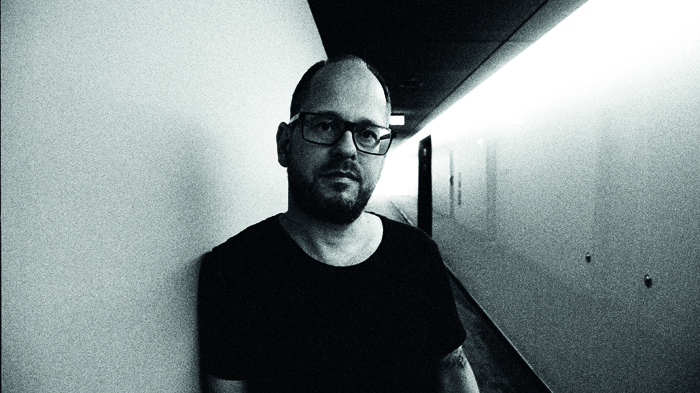
Once described as ‘bare and stripped back to the metallic core’, Hamburg-raised Huntemann boasts a reputation for being direct, clinical, perhaps even cold, and certainly unapologetically unforgiving. Working within a less-is-more framework, he removes the frivolous to focus on what is needed to move dancefloors.
Not industrial, yet nodding to some Germanic aural factory floor, his latest EP on Senso Sounds, 'Schwarzlicht'/'Filmriss', continues on this heads-down path whilst employing tones that call into mind progressive house. We asked for an explanation.
“I’m not house, or techno, but combine the two with a little bit of electro, after growing up around electro-funk in the 1980s,” Oliver tells DJ Mag when we ask him what music he makes and plays nowadays. “I often say techno, but not like Ostgut Ton or Len Faki, not as hard as that, just a dark groove.”
“The thing is, people always put DJs in these genre categories. For me it was electro for a while, then minimal, and I was playing all these minimal parties, but I didn’t really change my style. I strip everything, reduce everything and let the sounds come out to their full, but I think minimal is definitely the wrong word.
“These days, though, I’m moving towards musicality,” he continues. “It’s not really like big room, or trance, but more atmosphere, maybe three or four notes, rather than just one... I try to evolve my sound all the time because I’m never satisfied. What I don’t like is that there are so many old school DJs from the '90s, especially in America, that are still doing the same thing with the same records. Electronic music is about doing something new, not playing in 1995.”
Defining tracks: '37°' (International Deejay Gigolos/Confused Recordings, 2006); 'The End' (Ideal Audio, 2011); 'Schatten' (Ideal Audio, 2014).
POPOF
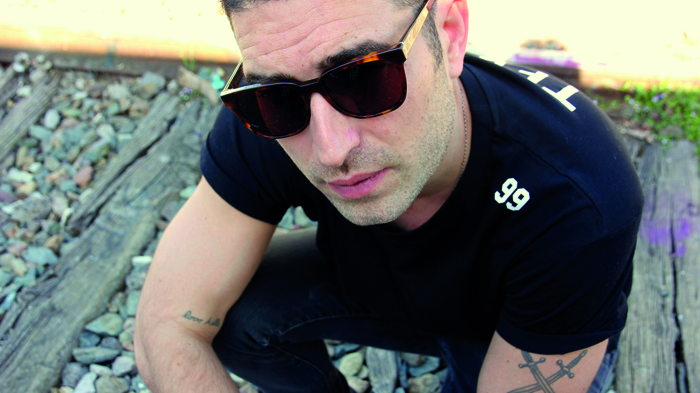
With his latest long-form effort having landed on the ever-high-flying Hot Creations label in late-June, it doesn’t take a genius to work out that Alexandre Paounov, aka Popof, has been something of a chameleon since first establishing himself on the dance scene. That is, providing you were aware of where he came from way back when, as he started out making a name for himself in the European underground.
The Frenchman’s early days were spent as a member of free party crew Heretik System, and were defined by a rave mentality — with shades of hardcore breaks and gabba-esque lunacy more than audible in his productions.
A far cry from the Parisian lynchpins most associate with his homeland’s electronic culture, these sounds softened only slightly as subsequent singles arrived, such as the wasp-in-a-jar techno jacker, 'Mr Orange', unveiled in 2009, and that intense percussion-heavy workout, 'Resistance', which arrived two years later and immediately received significant recognition.
None of which appears to marry up to anything off the largely lackadaisical, soul-inflected, summery house dominating new album, 'Love Somebody'. Boasting a timbre typical of the imprint behind the release, lush melodies croon over warm, oft-dubby basslines and flat-footed kick-drums.
Whilst elements of his former self can be heard on sparser tracks, such as 'Pack & Rollin’' or the drummy toybox tech of 'I Want You', you could be forgiven for filing it in a category that’s more indicative of Jamie Jones and Lee Foss’ trademark accents than the Gallic artist and Form Music bossman’s own back catalogue.
Yet he’s still quick to point out that, in his eyes, this is very much a release that makes sense in so far as his overall oeuvre goes. It’s telling of his desire to take on whatever canon he chooses next, rather than maintaining a stylistic consistency, in turn risking falling foul of what some might term predictability.
He even goes so far as to state that the minimal tag still applies — you just need to find those elements. Although, like so many of his peers, the idea of being pigeonholed doesn’t exactly sit comfortably with Popof — potentially a route cause of his apparent desire to shapeshift, differentiate and evolve over time in a way that many fail to achieve.
“Yes, it’s still relevant — although I’ve never liked being labeled,” he says. “My music oscillates between minimal techno and house; it cannot be defined by one genre only.
“The tracks on my new album were created the way all of the previous ones have been — according to what I feel like doing, to my influences and to my mood of the moment,” Popof continues. “There is no predefined path; this is simply my new production. And I would like to add that I am thrilled and proud to see my album released on Hot Creations.
“Ever since I began to produce music, my work has been perpetually evolving over the years. I love to explore different genres and give them a try. From hardcore to techno, from techno to minimal to house music, I’ve always composed music the way I liked and the way I felt at the time.”
“I think my approach towards composition has been quite the same since I started out,” he adds. “I’ve always used, and evolved with, Cubase, utilising in parallel various hardware — synth, drum machine, effects and so on. I’ve always created my tracks this way.”
Defining tracks: 'Shhhut' (Heretik, 1999); 'Serenity' (Form Music, 2009); 'Words Gone' feat. Arno Joey (Hot Creations; 2015).

